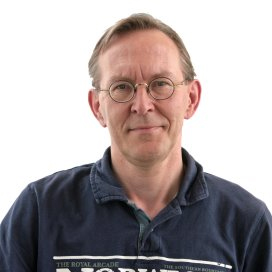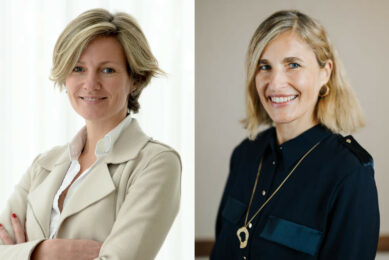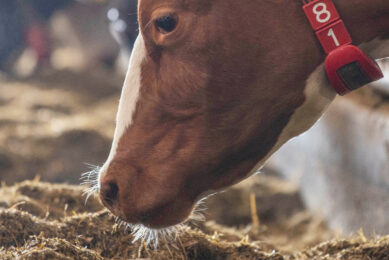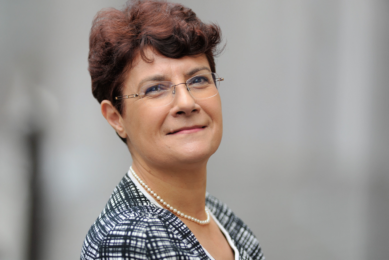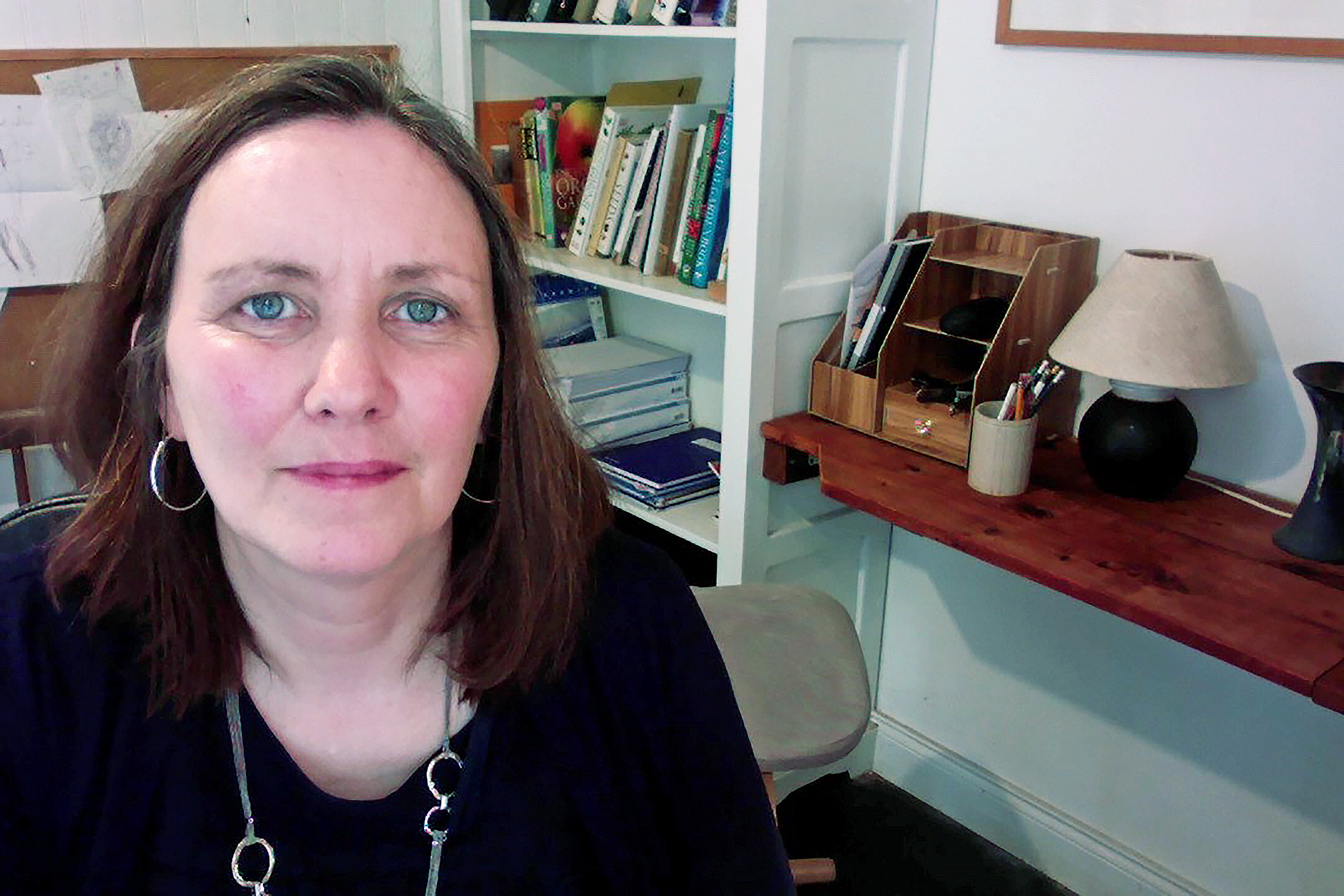Interview: DMK Group’s CEO talks changes and goals
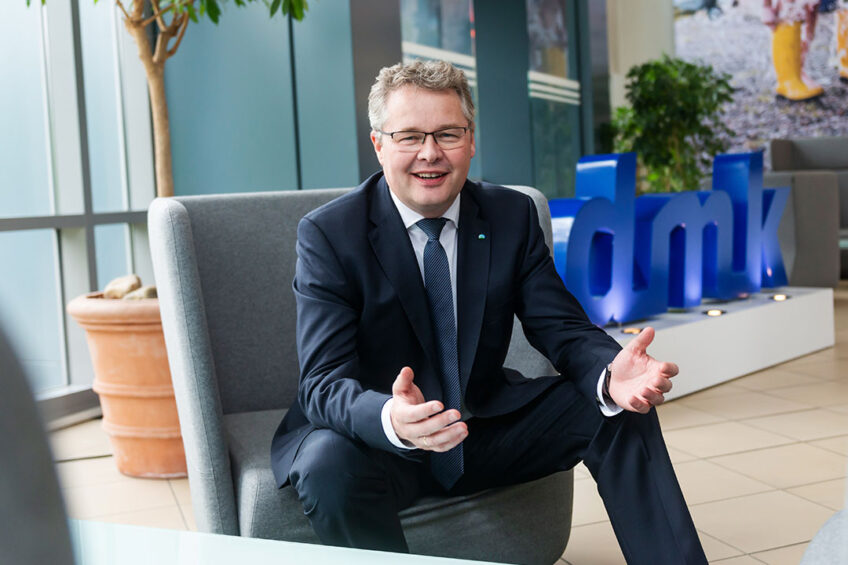
DMK Group, mother company of DOC Kaas, is ready to benefit from years of conversions and investments, says CEO Ingo Müller. Here he talks about changes and DMK’s goals.
DMK Group realised a result of € 30.4 million in 2018 with a turnover of nearly € 5.7 billion. In the previous years, that was € 29.6 million and over € 5.9 billion respectively. Management at the company is becoming more optimistic. We spoke with Ingo Müller, CEO.

Dairy Global: DMK says it is doing increasingly better. Will members benefit?
Ingo Müller: “We started DMK’s complete reorientation in 2017. A lot has happened since then. We restructured our organisation and following that made some large investments. One being the construction of our baby food factory in Strückhausen. Furthermore, there were factory closures and investments in new products, such as the introduction of skyr in the yoghurt and ice segments, the production of a special powder (full, skimmed or fat-filled milk powder) in the Zeven factory, the acquisition of infant nutrition label Alete (to strengthen our presence in baby food), the introduction of new, ultramodern packaging for Humana baby food, collaborations with strong brands such as Baileys and Bahlsen (ice-cream) and the introduction of new products at Uniekaas and Milram.
These measures will still cost us money this year, but they are all meant to sustainably pay a better milk price. Our task now is to reap the benefits of our investments and to close the gap regarding the milk price, so we will get to the place where DMK belongs: above average, both permanently and consistently.”
Where can we notice these new steps the most?
“Some examples of what we implemented in the last 24 months are: a new company structure with 6 business units (BUs) and new managers. 1,500 employees were given a different job within the BU system and we have rediscovered and activated our main brand Milram. In order to do this, we have successfully launched products, reinvigorated the brand and given it a North German origin. Right now, the brand shows growth in all categories. New products such as Milram ‘Kalder Kaffee’ (without added sugar) will be launched and we can already see we have laid out the right course.
In Russia, we have increased our interest in RichArt to 100%. Russia is one of the most important non-European growth markets for us. As far as VLOG is concerned, we have become the largest European player in a very short time, and we have been able to respond quickly to consumer and customer demands.
We have signed production contracts with Arla and Royal FrieslandCampina (RFC) to compensate the loss of about 1 billion kilogrammes of milk and to use our factories’ capacity even better. We also use the lower milk volume to terminate the production of low-yielding dairy.”
The market for dairy alternatives is very lucrative and offers attractive growth possibilities.”
Which aspects are most difficult to change?
“In addition to a fundamental organisational change, there is an enormous change in company culture. DMK Group’s reorientation also demands a change in mindset. We used to look at everything from a volume point of view. Size, manpower; that was the ‘old’ DMK’s strategy. Now we focus on value creation before growth.”
DMK invested considerably in baby food but does not yet have permission to start selling in China. What does that mean?
“We are present in more than 50 individual markets with our brand Humana. We have our own sales units in Germany, Poland, Spain, Portugal and Italy. In China and Russia, we mostly work with distribution partners. We focus our activities mostly on Europe, the Middle East, East and Far-East Asia. Our ambition for China remains the quick registration of our Humana products. Our baby food activities grew by 5% last year, which is stronger than the market for this sector. There is however even more potential. The period that costs precede benefits will end at the end of this year.”
About DOC KaasDOC Kaas has noticed the positive results of its merger with DMK, according to its annual report 2018. It says it succeeds more and more in paying a competitive milk price. Starting in 2019, it stopped its monthly deduction of milk money when the receipts exceeded 110% of costs.  Since the merger with DMK, cooperative DOC Kaas has in essence also been a kind of supplier association. Photo: Reina de Vries DOC Kaas’ milk supply decreased from 832 to 796 million kilogrammes in 2018. The main reasons were drought and phosphate reduction. Based on the average amount of milk per supplier and the total supply of member milk, the number of members has decreased from 1,008 in 2016 to 833 in 2018. |
How does DMK want to excel?
”First and foremost, we process our members’ milk and market our products. Secondly, we process milk into cheese for RFC , in Hoogeveen (the Netherlands), on a contract basis from their milk, using our labour and facilities. Starting in 2019, we will process milk for Arla in Nordhackstedt and starting in 2020 for RFC in Georgsmarienhütte. In this way, we can make the best use of our plants.”
Looking at global developments, 2 things stand out: on the one hand, there is not enough milk to feed a growing global population and on the other hand, consumers search for alternatives for various reasons.”
DMK also produces for Arla and RFC. Will this cooperation remain or even become more important?
“We process about 8 billion kilogrammes of milk annually. The cooperation with RFC and Arla is part of our strategy in the field of raw materials. Our raw milk comes from multiple sources.”
In Germany, DMK has a successful trading and production subsidiary company, Fude + Serrahn. How important is this company for DMK?
“We also work closely together in whey. We have a 51% share in Fude + Serrahn. We work with a similar contract to the one we have with Arla and RFC.”
DMK cooperates with Vergeer Holland in the Netherlands. Will DMK aim for a structural cooperation?
“Our Dutch colleagues add much know-how to different segments. It is our ambition to significantly improve this cooperation across our borders. It still has a lot of potential in the field of dealing with brands, but also in respect to culture and procedures. We also work closely together in the pasture. DMK Group wants to further deepen its strategy of value creation. Our subsidiary Wheyco and our cooperation in DVN play a pivotal part in this strategy.”

The who’s who in the dairy industry talk to Dairy Global… for more interviews click here
Large supermarket chains do not make life easier for food producers. What is needed to improve this situation?
“A healthy, balanced lifestyle is the new norm. DMK develops new concepts and products that meet consumer’s needs and help them to live a balanced life. As a leading food producer, we focus on a clear client-oriented and market orientation to offer dairy products for every stage in life. We have a great range from baby food to cheese, dairy and ice-cream to ingredients, that represents quality, diversity and innovation. As a modern food producer, we do not focus on raw materials, but always on consumer needs and expectations. This is the only way we can meet these needs and continue to improve.”
DMK will possibly start producing alternatives for dairy. Did members applaud when you told them?
“Looking at global developments, 2 things stand out: on the one hand, there is not enough milk to feed a growing global population and on the other hand, consumers search for alternatives for various reasons. Running away from that or ignoring it would be unwise. Changing consumer preferences and an increase in food intolerance have led to a new market for plant-based alternatives. This market has been growing with double digits for several years now, is very lucrative and offers attractive growth possibilities. Obviously, we want to respond to that.”


